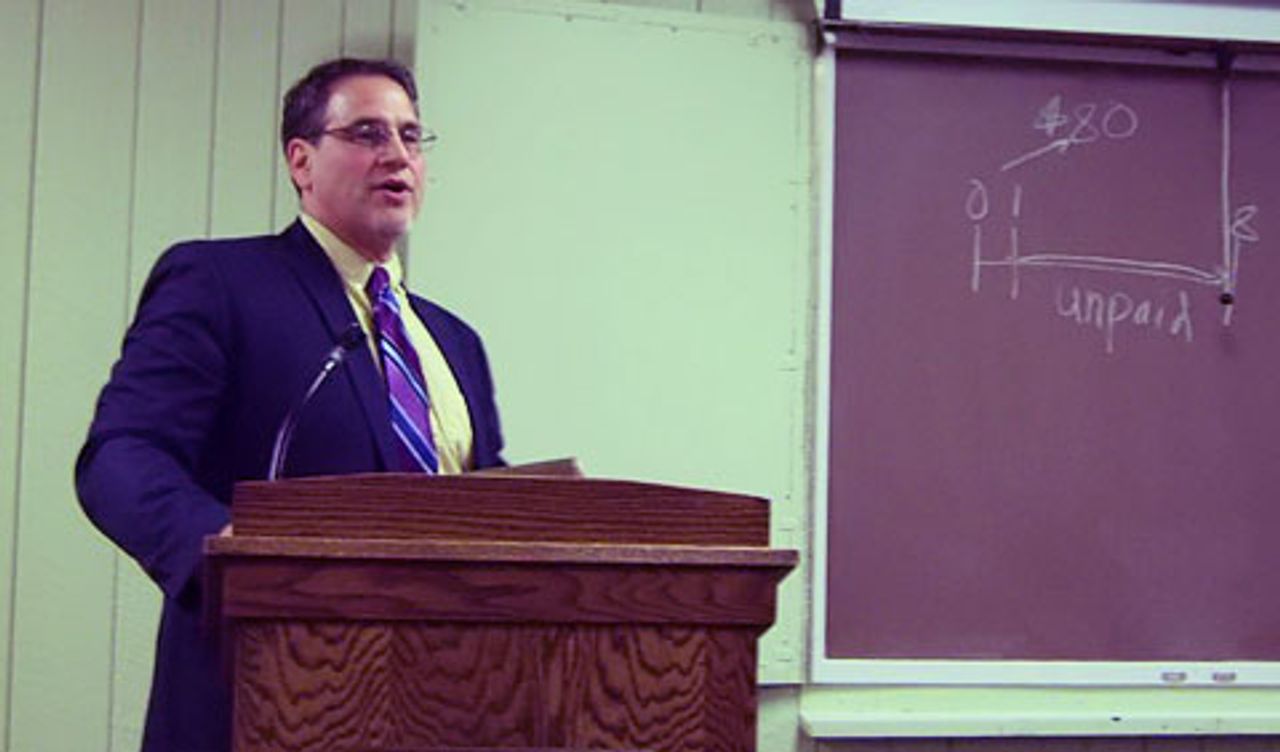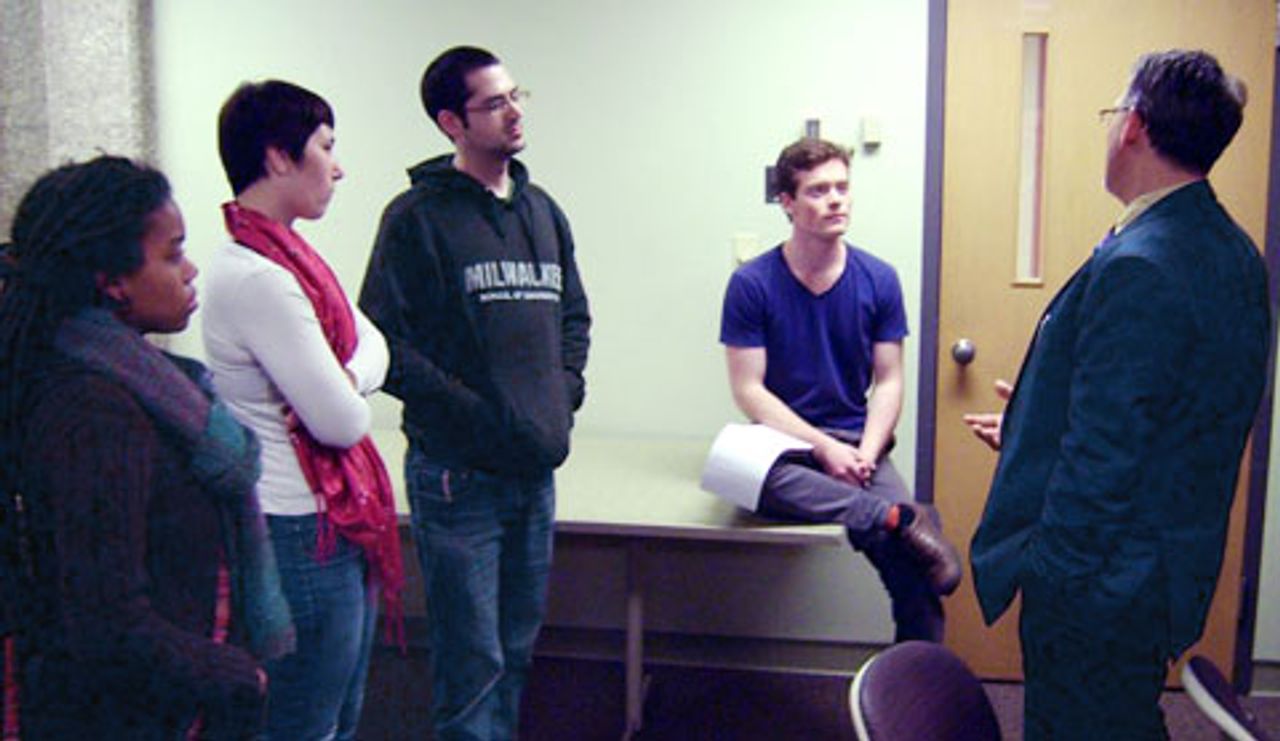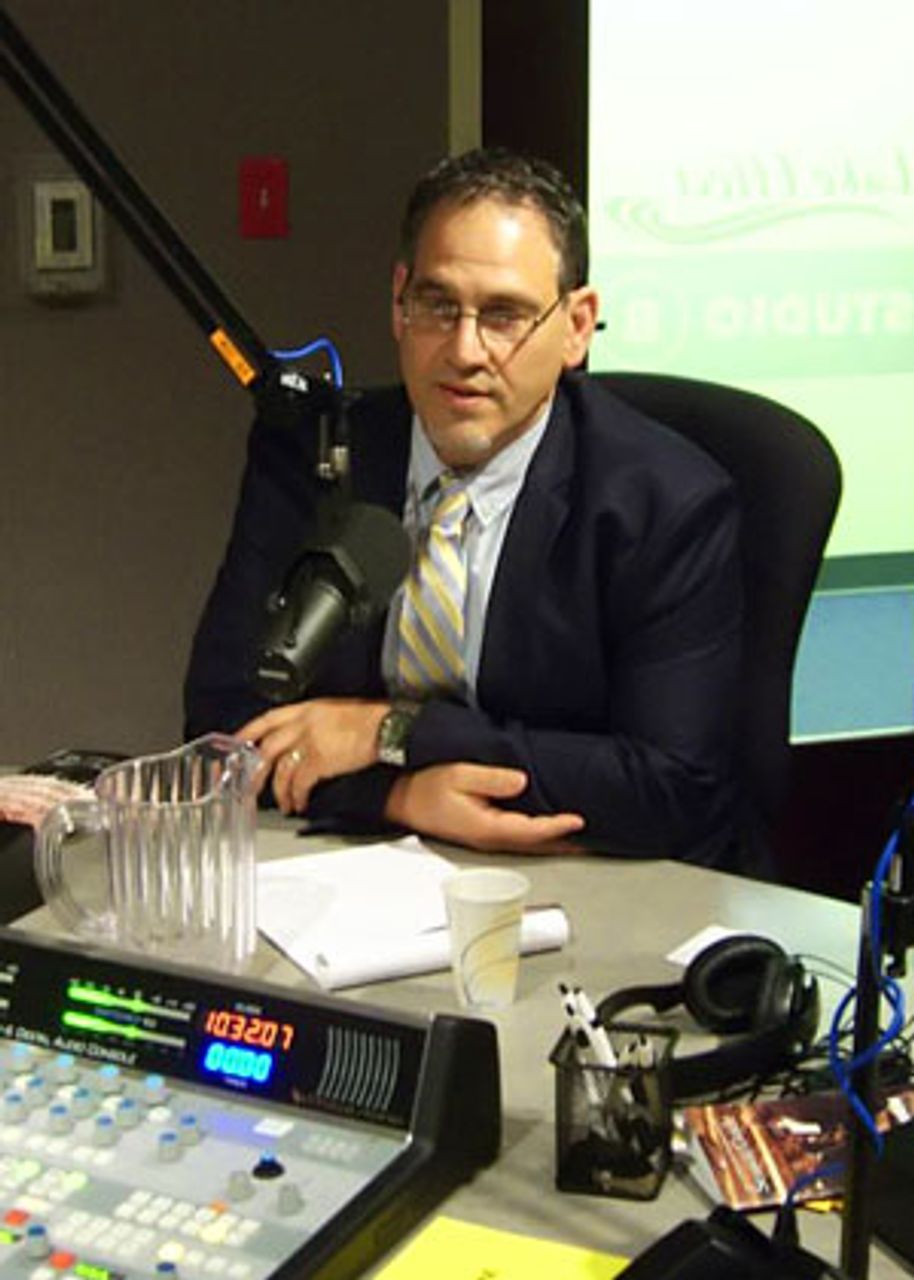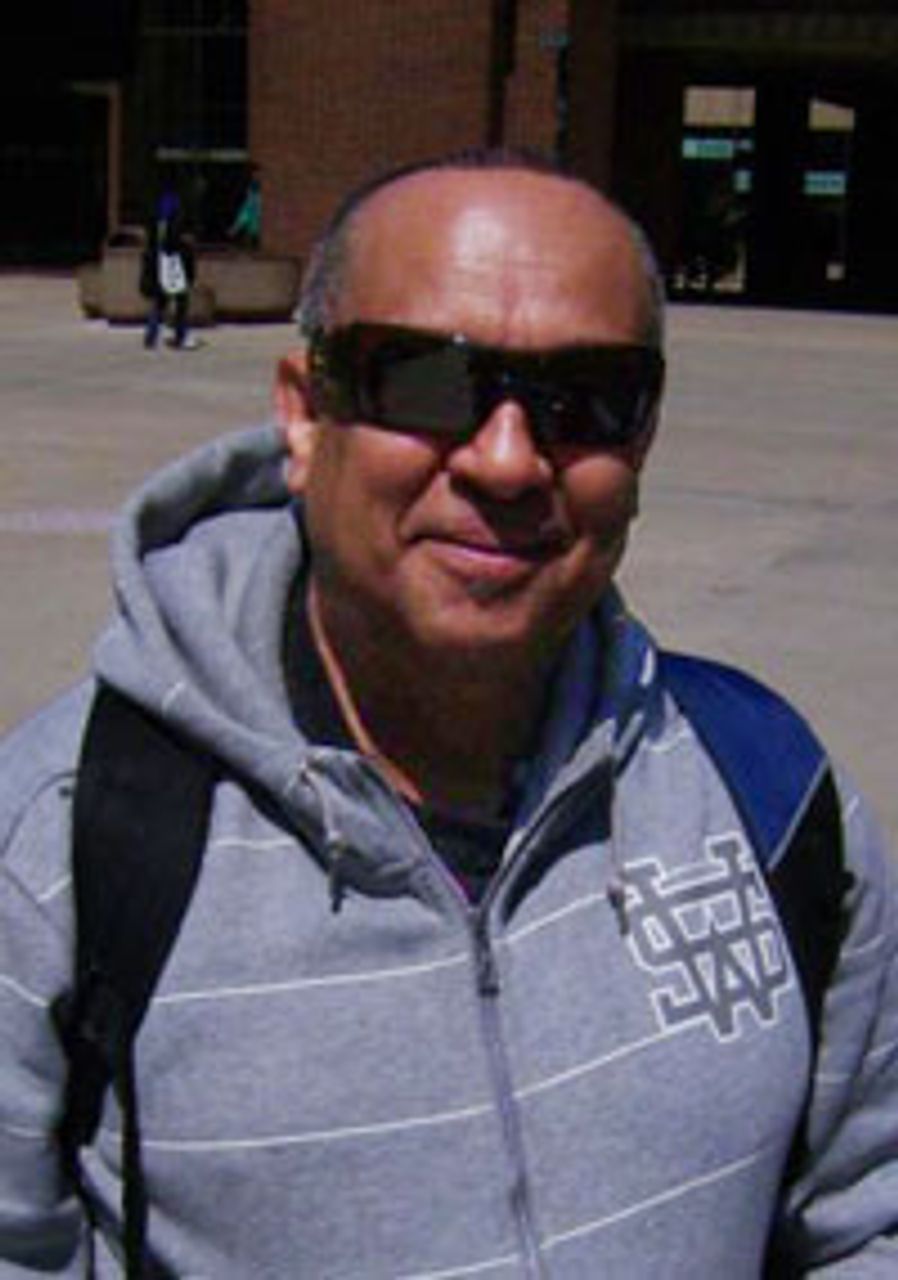 Jerry White speaking to the meeting
Jerry White speaking to the meetingThe International Students for Social Equality at the University of Wisconsin, Milwaukee hosted an election meeting on Tuesday featuring Jerry White, the Socialist Equality Party candidate for US president.
The meeting was the first held by the SEP in Wisconsin since the outbreak of working class protests last year. It was attended by about 15 students and workers in the area. White’s remarks were followed by extensive discussion on the basic issues facing workers and young people in the US and internationally.
The University of Wisconsin, Milwaukee is a largely working class public university located in the northeast section of the city. Along with the rest of the UW system, it was subject to massive cuts carried out by Governor Scott Walker. The cuts were part of the measures that brought tens of thousands of students and workers to the state capitol in Madison last year.
In his report, White reviewed the character of the US elections, in which none of the basic issues facing millions of people is being seriously discussed. “These election are a monumental exercise in fraud,” he said, “aimed at concealing from the people of the United States and the world the reactionary measures that will be taken regardless of whether a Democrat or Republican is in the White House in 2013.” These measures include the expansion of war, the destruction of democratic rights, and the assault on the jobs and living conditions of workers and youth.
“Everywhere [vice presidential candidate] Phyllis Scherrer and I have traveled in this campaign—from New York City and Boston, to Tampa, West Virginia and Kentucky, from Michigan, Ohio, Indiana and Illinois, to California and Oregon—we have encountered a deep sense among workers that the entire economic and political order is against them,” White said.
He reviewed the disastrous conditions facing workers and youth, citing a recent report that more than half of all four-year college graduates under 25 are unemployed or underemployed. Students graduate with mountains of debt that place them in virtual indentured servitude to the banks, he added.
 Jerry speaks to university students Katrina (second from left) and Devin (to her left)
Jerry speaks to university students Katrina (second from left) and Devin (to her left)White said that the SEP anticipated the development of enormous social struggles, of which the mass protests internationally in 2011 were only an initial expression. “We aim to provide those struggles with a political leadership and direction, based on the perspective of international socialism, the fight for the establishment of a workers’ government and the reorganization of economic life based on the principle of meeting human needs, not private profit,” he said.
In discussing the political issues facing workers and youth, White reviewed the lessons of the Wisconsin protests of 2011. The response of the unions and the Democratic Party to the mass anger over Walker’s cuts was to try to divert it into a series of futile electoral maneuvers and recall campaigns. The aim was to contain opposition within the framework of the Democratic Party, which agreed on the need to balance the budget on the backs of the working class.
“Pseudo-left groups like the International Socialist Organization and others,” White added, “worked to promote the illusion that the Democratic Party and its appendages in the trade unions could be pressured to represent the interests of working people.” They are now playing the same role in the run-up to the 2012 elections.
White also spoke about the significance of the elections in France, explaining that the politics of the upper middle class “left,” represented by the Left Front, served to strengthen the hand of the right-wing by blocking the independent political mobilization of the working class. (See, “Political issues in the French presidential election”)
 White being interviewed on the campus radio station
White being interviewed on the campus radio stationA lengthy discussion period followed White’s remarks. One student raised a question about the roots of the SEP, which White addressed by tracing the history of the Trotskyist movement in the 20th Century. He also explained the origins and evolution of the Soviet Union in response to a question from a retired worker about the concrete form that a democratic workers government would take.
Students and workers stayed after the end of the meeting to continue discussion. One student, Phillip, expressed some pessimism about the possibility of change within the current political system, but said that White’s speech and the SEP’s election campaign gave him some hope. “Where awareness grows, the possibility for change emerges.”
Two students, Devin and Katrina, expressed their disappointment with other groups on campus, in particular the Students for a Democratic Society (SDS). Likening SDS meetings to “pizza parties,” Katrina dismissed the SDS as, “a group of former high school friends who just get together to hang out. There’s no unifying perspective, no one feels they can tell anyone else what they think, and so no one knows what to say.” Both expressed interest in getting involved with the ISSE.
Katrina remarked that the SEP’s election campaign was important to young people who are “trying to articulate their feelings after being disappointed by Obama.”
In campaigning on campus before the meeting, ISSE members engaged in conversations with a number of students. Many expressed disgust with the record of the Obama administration. “Anything has to be better than Obama,” said one young chemistry student. She noted that under Obama Pell grants had been cut from a maximum of six years to only six semesters, and that because of this she was not sure how she would be able to finish school.
 John Brown
John BrownJohn Brown, an information science student who aspires to a PhD in sociology, called the American government a “corporatocracy.” He added, “This system is breaking down. Why is Obama continuing the policies of Bush? Because the powers-that-be are basically buying him.”
John said that politicians “trust in people not to pay attention,” but that “people who have been asleep are starting to wake up.”
On Wednesday morning, White was interviewed by Mitch Teich of the Lake Effect program on 89.7 WUWM, the Milwaukee Public Radio Station. The interview was pre-recorded and will be broadcast on the radio and posted on the WUWM website later next week.
The authors also recommend:
Political lessons of the battle of Wisconsin
[23 March 2011]
